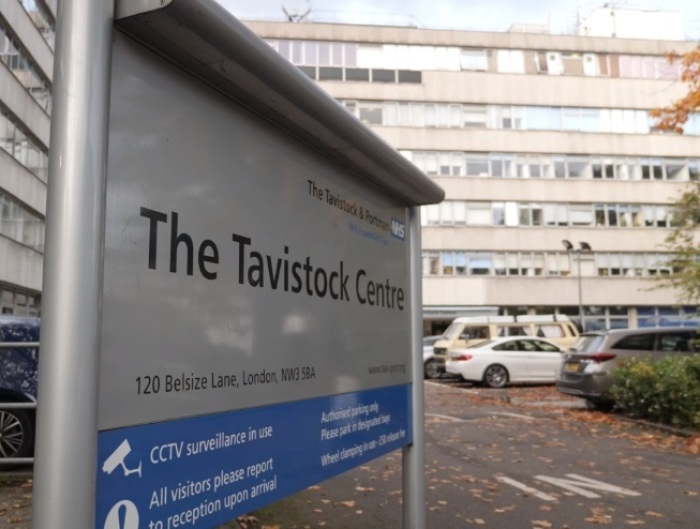Gender clinic whistleblower details why he exposed medical abuse of children

The psychoanalyst who blew the whistle on England's Tavistock gender clinic has detailed the troubling culture within the facility where he says children are being persuaded to pursue experimental transgender medical practices.
In a Jan 13 Triggernometry podcast interview with hosts Konstantin Kisin and Francis Foster, Dr. Marcus Evans explained the reasons he felt compelled to speak publicly about the variety of influences that have led many young people down the pathway of the medicalization of gender.
The NHS' Gender Identity Development Services (GIDS) has come under intense scrutiny in recent years due to the experimental nature of the hormonal gender-transition of minors. It operates two clinics in London and Leeds, England, for children 18 years old and younger.
Evans is among the clinicians who have gone public with their concerns about troubling internal protocols within the London clinic, known as Tavistock. His wife, Sue, also worked at the clinic and became alarmed at the number of children who became fixated on the idea that their body was wrong and that they needed to physically transition genders.
"What she felt was that there should be a thorough psychological investigation, as was the Tavistock's tradition, into five family dynamics, individual psychology. And she felt there was too much of a willingness to sort of go along with the kid in terms of the kid's idea [to transition]," he said, noting that the youth being treated with gender issues were often suffering from a number of mental health conditions.
Whereas gender-transitions decades ago were mostly males, in recent years a new cohort has emerged, mostly females at increasingly younger ages. During his wife's tenure, there were 14, 15, and 16-year-olds, but now children as young as 10 are going to the clinic and the age at which they are acquiring cross-sex hormones is getting younger.
But in the culture of the clinic, she felt that her concerns were being shut down and dissenting voices were being squelched, "and she felt she got nowhere," he said.
It soon became realized that gender dysphoria had been politicized and that the medical facility was being unusually influenced by transgender activist groups like Mermaids and Gender Intelligence. While Evans had professionally interacted with other charities, they had never insisted on having sway over the culture of the clinic as the gender activist groups did.
The pushing of those professional boundaries yielded a clinical environment where Evans felt uncomfortable working.
"Once your decision-making is based on a preexisting belief structure, maybe embedded within the clinicians, maybe met by some of the parents ... you're not in a clinical environment," he said of the politicization of the topic.
Social media has compounded the problem kids are having during adolescence by encouraging them to undergo gender-transition, experts have warned. Another recurring concern is that a large number of autistic children are being pushed into transitioning.
An alarming piece of evidence that was discovered during a recent case against Tavistock was that it was receiving very little scrutiny from government and medical authorities and that children were being fast-tracked into radical interventions.
"Ninety percent of the kids who start on puberty blockers are on a medical conveyor belt, which doesn't stop until cross-sex hormones etc.," he said.
Commenting further on the Tavistock case, which was brought by a detransitioner named Keira Bell, Evans said there was no comparison in terms of the quality and depth of the research and evidence presented by the experts arguing against the gender-transitioning of youth versus the pro-trans side whose arguments rested almost completely on political beliefs. Those beliefs were backed up by one study done in the Netherlands in 2011 on 70 boys, 20 of whom dropped out, he explained.
"The case is an amazing win for sanity and it safeguards against early medicalization of kids," Evans said.
Evans recounted that he is sometimes told that people tell him that what he's describing cannot be as bad as he says, or that he's angry at the clinic.
"As a mental health practitioner who is proud to be in the business, I'm really quite ashamed ... this is political belief and ideology over rational, scientific argument," he said.
"There's all sorts of things you can't do until you're 18," he said, like getting a tattoo, adding that "there's a sort of non-think about this area. It's like a group phenomenon and you cannot challenge it."
Evans said he has been called a "Christian right-wing bigot" and the accusation that is sometimes leveled at him is that he wants to control people's lives and make patients into a version of what he wants them to be.
"We've become obsessed by people's feelings and at the moment our discourse is dominated by what people feel," he added.
"This idea that you can define who you are ... your identity is partly formed by who you think you are but it's also in negotiation with the external world. And we've sort of lost sight of that. We live in relation to the external world.
He concluded: "We don't have the right to say, 'This is me and you've got to accept it and if you don't I'll scream and shout at you.' Other people have got their own minds. They're entitled to have a view, including what they think of you. This is important for individual psychology and psychological health and it's important for democracy."




























